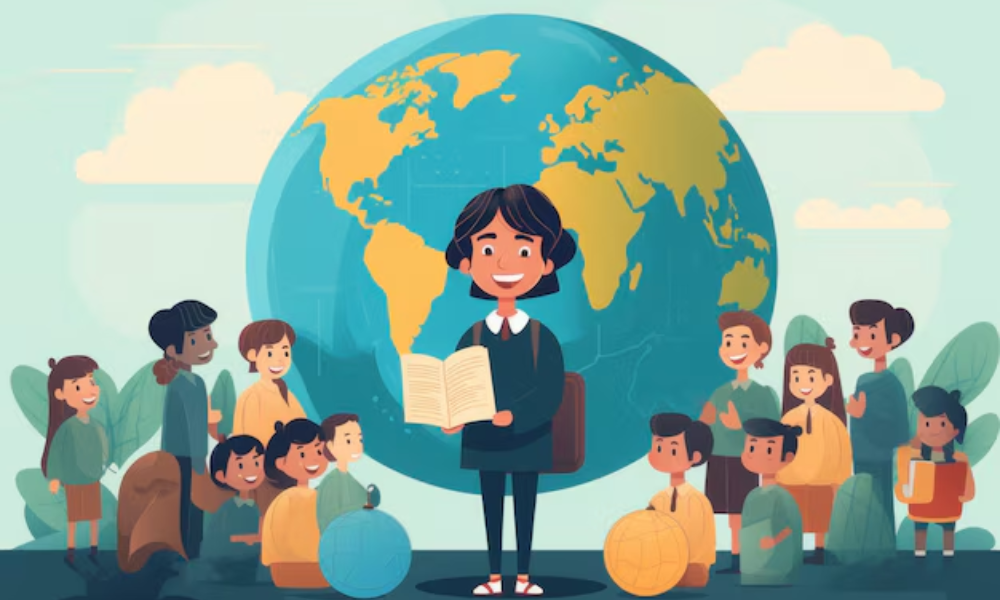International schools in India are not just focused on academic excellence but also on molding students into future leaders with strong moral and ethical foundations. Characters education plays a pivotal role in shaping responsible citizens, and international schools in India have embraced this through their curricula and extracurricular activities.
What is character education?

Characters education involves the development of core ethical values such as respect, responsibility, honesty, and empathy. In international schools, this goes beyond traditional moral education by integrating global perspectives, cultural understanding, and emotional intelligence into everyday learning.
Key Elements of Character Education in Schools:
- Moral Values: Teaching students the importance of integrity, empathy, and respect.
- Emotional Intelligence: Helping students manage their emotions and develop empathy towards others.
- Social Responsibility: Encouraging community involvement through service-learning projects and social initiatives.
Why is Characters Education Crucial in International Schools?

In today’s globalized world, students need more than academic knowledge to succeed. They must be prepared to face ethical dilemmas, work in diverse teams, and lead with integrity. International schools in India recognize the importance of characters education in building not just knowledgeable individuals but also ethical leaders.
Benefits of Character sEducation for Students
- Fostering Leadership Skills: Characters education encourages students to take on leadership roles and make decisions that benefit the greater good.
- Developing Global Citizens: With a focus on global understanding, students are taught to respect cultural differences and work collaboratively across boundaries.
- Enhancing Emotional Intelligence: By focusing on self-awareness and empathy, students learn to navigate relationships and conflicts effectively.
How International Schools in India Implement Character Education

Holistic Approach in Curriculums
International schools, particularly those following the IB curriculum, emphasize a well-rounded education. Character development is embedded in subjects such as social sciences, arts, and community service, helping students apply their ethical understanding in real-world situations.
Leadership Opportunities and Service Learning
International schools offer numerous opportunities for students to develop their leadership skills. Programs such as the Duke of Edinburgh’s Award or Model United Nations encourage students to lead projects, debate ethical issues, and engage with global challenges.
Community Engagement Initiatives
To foster a sense of social responsibility, many international schools organize community service programs, where students actively participate in projects that benefit society, such as environmental conservation or teaching underprivileged children.
The Role of Teachers in Characters Education

Teachers play a vital role in delivering characters education. They act as role models and provide students with the guidance they need to develop morally and ethically. Schools invest in teacher training to ensure that educators are equipped to teach emotional intelligence and conflict resolution alongside traditional subjects.
Key Strategies Teachers Use:
- Discussion-Based Learning: Encouraging students to engage in debates on ethical dilemmas.
- Mentorship Programs: Providing one-on-one support to help students reflect on their values and decisions.
- Modeling Ethical Behavior: Teachers demonstrate ethical practices in the classroom, helping students learn by example.
Challenges and Future of Characters Education in India’s International Schools

Balancing Academic Rigor with Character Development
One of the challenges that international schools face is balancing the pressure of academic excellence with the need for character development. However, schools are increasingly adopting innovative teaching methods that integrate both aspects seamlessly.
Technological Integration and Digital Citizenship
As digital learning becomes a central part of education, international schools are focusing on teaching digital citizenship—helping students understand the ethical use of technology and the importance of maintaining a positive online presence.
Conclusion: Building Future Ethical Leaders
Characters education in international schools in India is not just about teaching students right from wrong; it’s about developing ethical leaders who can navigate the complexities of the modern world with integrity, empathy, and global awareness. By incorporating moral and ethical education into their curriculums, these schools are preparing students for a future where their decisions will impact the world.









